EAST Hampshire MP and secretary of state for education Damian Hinds was given a grilling during a high-level Question Time-style panel discussion at Bohunt Sixth Form.
The event gave sixth form students the opportunity to engage on topics involving education and their local area.
The Education in an Uncertain World panel discussion was based on the popular Question Time format and hosted by Bohunt Sixth Form, part of Bohunt Education Trust (BET), in conjunction with Bedales School as part of an ongoing education collaboration.
The afternoon was attended by more than 120 politics, economics and history sixth form students from Bohunt, Bedales and Churcher’s College in Petersfield.
Mr Hinds was joined by panellists Neil Strowger, headteacher of Bohunt School and chief executive of BET, Magnus Bashaarat, head of Bedales School, and journalist Victoria Lambert, who acted as the chairman, as well as two students – Vanessa Buckingham from Bohunt Sixth Form and Connie Gillies from Bedales.
Students asked the panel a number of questions, varying from education to Brexit, through to policies affecting the local area.
Mr Hinds was challenged on lowering the voting age from 18 to 16, which he claimed would make only a small overall difference to the number of voters.
“It is not my experience that many 16-year-olds want the vote,” he said. “Many 18 to 30-year-olds have good positive reasons to vote but they don’t. If we lower the age of voting, we could not make it any more compulsory than it is now.”
The question whether mobile phones should be banned from schools started another lively debate, but Mr Hinds put the decision firmly into the hands of individual headteachers, who, he said, should make the decisions.
Mr Strowger aired his frustration about the percentage of A-Level students being offered a place at Oxford and Cambridge.
He felt it was “massively unfair” for pupils who do not go to fee-paying schools, as they make up 34 per cent of those who receive places at Oxbridge.
Mr Hinds agreed access had to be fair and that everybody should be able to go to university. His advice was “just because you don’t go to a private school, does not mean you cannot go to Oxbridge – don’t be put off”.
He championed the benefits of academies – such as Bohunt – with more than 50 per cent of children in state-funded schools in England now being taught in an academy or free school. He said standards were rising faster in many sponsored academies than in similar council-run schools.
Mr Hinds also tackled the Brexit question and how it would affect education. He stated although Brexit would affect ‘everything’, education will not be hit as much as other areas.
However, the Erasmus system, which serves students in the UK and across the EU – and provides them with foreign exchange options at some of the continent’s best universities – will be affected.
“It will still be possible to do those exchanges and at present, twice as many young people from other countries come to the UK to study than go the other way,” he said.
“This is why it is important for us to have a balanced, negotiated exit deal, and not ignore and forget the other side.
“Our job is to balance a deal that works for as many people as possible.”
After taking part in the event between BET and Bedales, Mr Hinds added: “It was wonderful to meet so many enthusiastic and engaged young people, and to see students taking a real interest in education more broadly.
“The excellent contributions made by students demonstrated an impressive level of knowledge, passion and understanding for current affairs and events in the local area. I very much enjoyed it.”
Neil Strowger said: “The event provided students with invaluable involvement in ‘real-life’ political discussion, and has been an excellent platform for them to engage with peers from other schools.
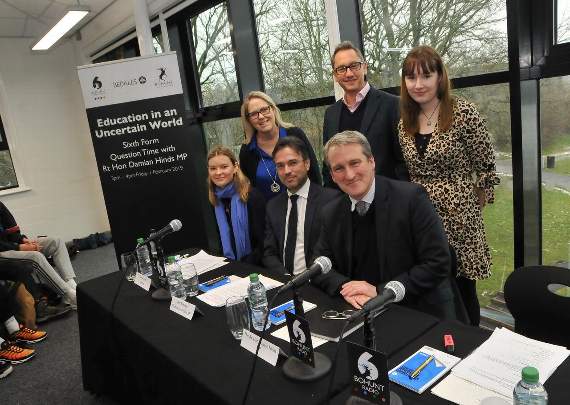
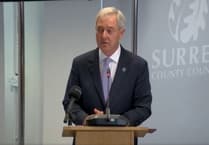
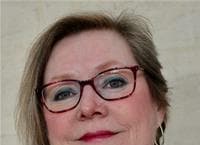
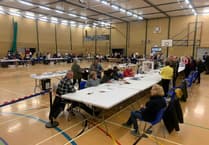
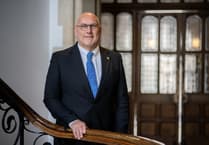
Comments
This article has no comments yet. Be the first to leave a comment.